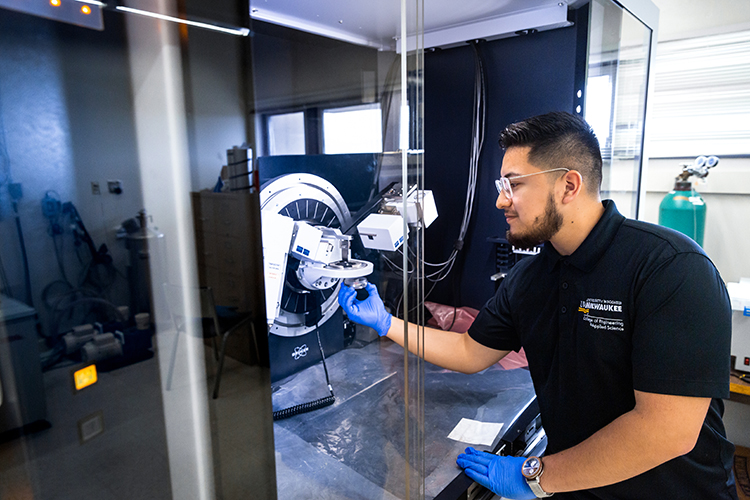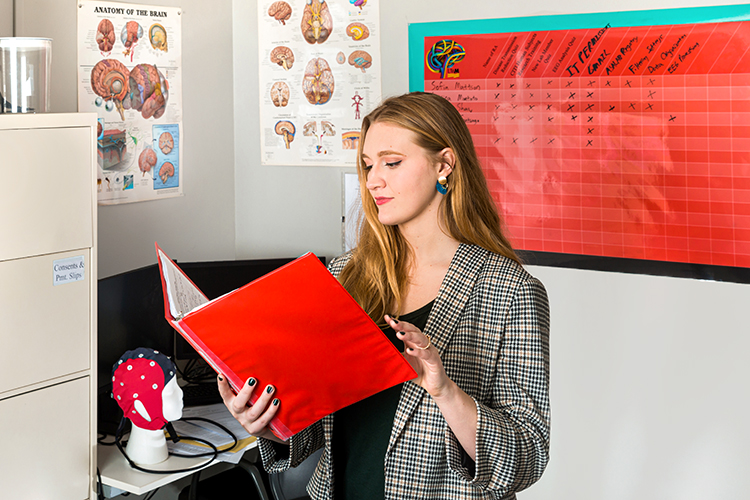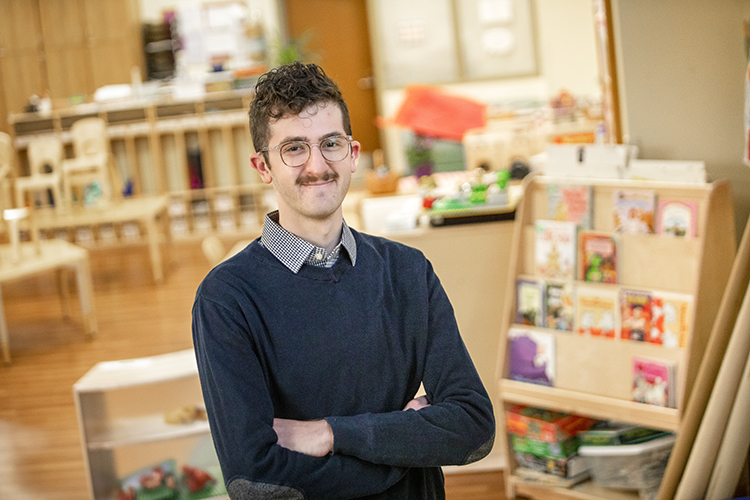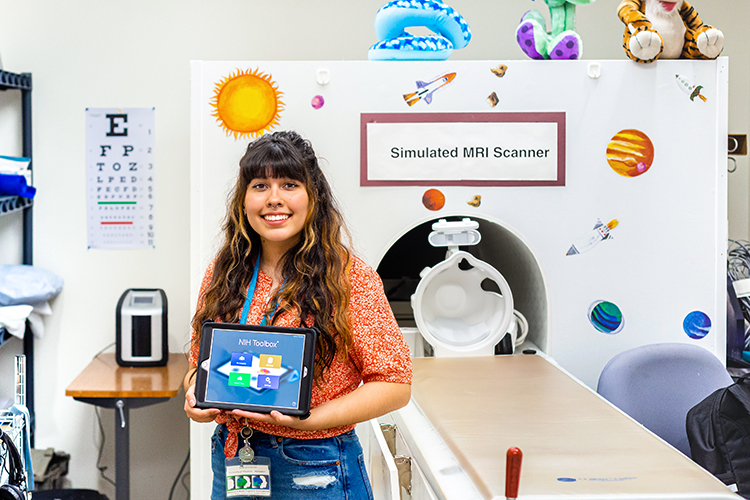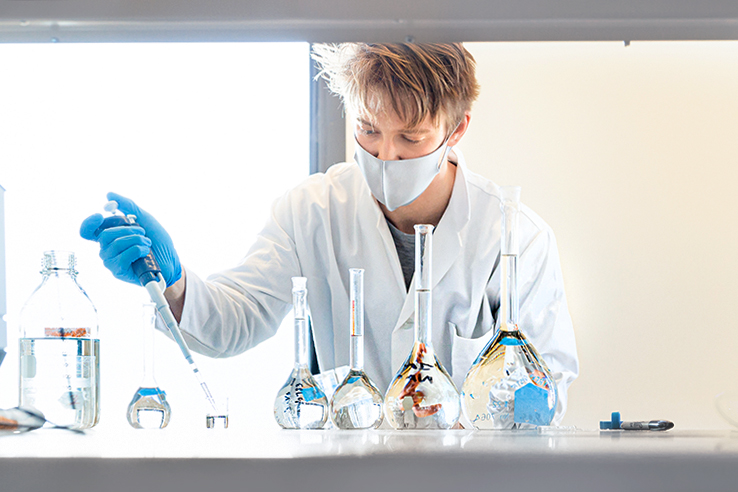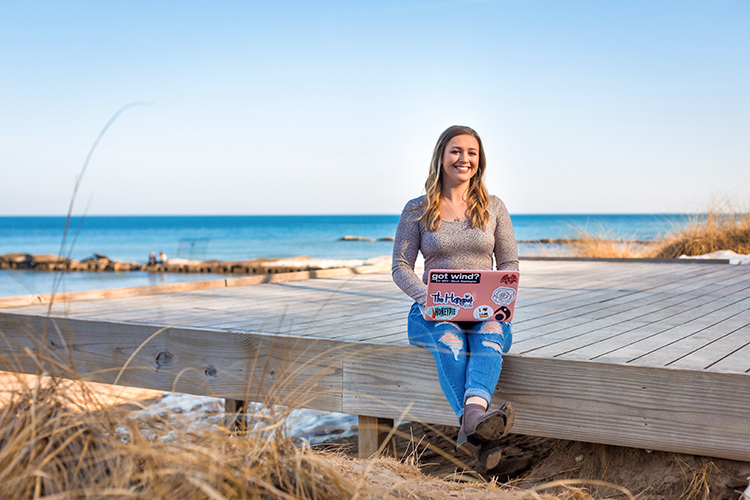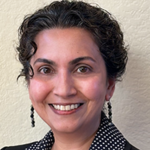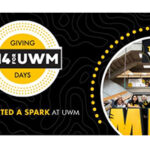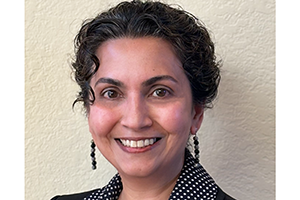UWM’s award winning undergraduate research program encourages and highlights the work of students all over campus.
Every year a number of these researchers are chosen to receive the Senior Excellence in Research Award (SERA). Here are summaries of the accomplishments of the 2020-21 award winners.
Jocelyn Jarvis, psychology
Jocelyn Jarvis, a psychology major, works with her mentor, Professor Krista Lisdahl, in the Brain Imaging and Neuropsychology laboratory, studying how such factors as socioeconomic status and gender identity affect adolescent brain development. She is part of the Adolescent Brain Cognitive Development Study, a consortium that is the largest long-term study of brain development and child health in the U.S.
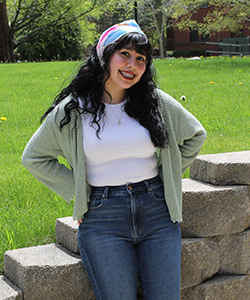
Jarvis, who grew up in Sussex, became interested in psychology, particularly child psychology, while volunteering at a homeless shelter in Walker’s Point.
“I’ve always been interested in working with kids. I saw how much work the counselors there were doing and how helpful it was.”
In addition to psychology, Jarvis is also majoring in philosophy and working toward a certificate in quantitative social data analysis.
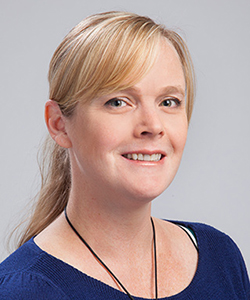
UWM’s status as an R1 research university and the opportunity to do undergraduate research were among the factors that attracted her to UWM, she said.
In addition to Lisdahl’s lab, she has also worked in the Child Stress and Coping Laboratory and the Adult Neuropsychology Laboratory, getting perspectives on different areas of psychological research.
“Research writing is a definitely a skill I didn’t have before,” Jarvis said. “I learned how to convey research in an approachable way so that anyone in the general public would understand the research I am conducting.”
Ismael Coello Ramirez, materials engineering
Ismael Coello Ramirez in studying ways to improve the chemical process used to make plastics commonly used in water bottles and baby toys.
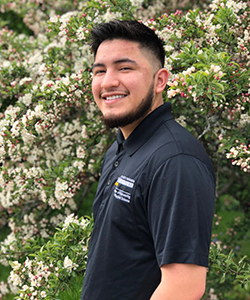
That material, polyethylene, is made at high temperatures in stainless steel tubes, but after a while buildups can accumulate inside the tubes and contribute to process inefficiencies.
Ramirez is working with his mentor, Associate Professor Benjamin Church, to research ways to prevent the buildup using a different type of steel and also cleaning the tubes more efficiently.
“Cleaning out the tubes takes a lot of money and time away from making the polyethylene,” Ramirez said. He and Church are comparing how the new methods they are researching compare with previous methods.
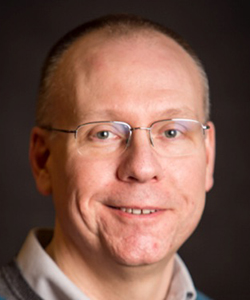
Ramirez, who was born in Mexico and came to the U.S. with his family at age 6, is a DACA (Deferred Action for Childhood Arrivals) student. He will be the first in his family to graduate from college.
His high school chemistry teacher in his hometown of Delavan helped him develop an interest in science.
“The teacher helped us connect the chemistry to what was happening in the world,” he said. Although he decided chemistry itself was too theoretical, he liked the idea of combining it with materials engineering. “Materials engineering is where theory and actual use come together.”
He was attracted to UWM both for the materials engineering program, its R1 research status and its diversity. “It was very friendly and welcoming. I really like that about UWM – I felt there were people here who could understand me and my culture.”
Ramirez credits Church and graduate assistant Lizeth Ortiz in encouraging him in his research. “They have showed me the nooks and crannies of research, how to organize files and write.”
Anna Kaminski, atmospheric science
Anna Kaminski’s interest in the science of weather started in her fifth-grade earth sciences class. In high school, she discovered that interest, along her with abilities in mathematics, might be a good fit for an atmospheric sciences major.
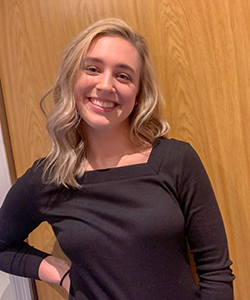
She started doing research her first summer at UWM, working with her mentor Clark Evans, associate professor of atmospheric science, as well as professors in New Hampshire and New York. Her research looks at “atmospheric rivers,” which are corridors of water vapor that produce bouts of precipitation along their path. She is lead author on an article about that work, which is soon to be submitted to a research journal for publication.
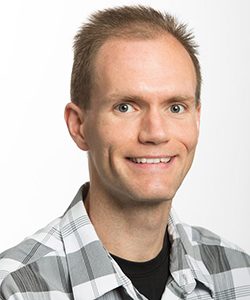
Kaminski has explored various options for a career in the field. Working in broadcasting or as a weather forecaster is one possibility. She job shadowed weather forecasters at a couple local TV stations, but research is her main interest, she said.
Evans, her mentor, has encouraged her all through her time at UWM. “He’s just a very good and organized advisor. He’s allowed me to get out of my comfort zone and apply for different internships. He’s helped me make this the best experience I could have had.”
Louis Chapman, civil engineering
Filtering ammonia and other materials out of Lake Michigan and other bodies of water is an increasing concern.
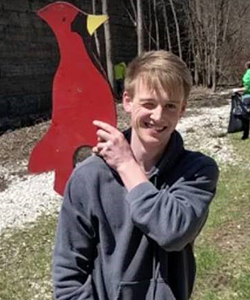
“There are serious areas of concern, including a big stretch of the lakefront in Milwaukee,” said Louis Chapman.
Chapman, a senior in civil engineering, is working with Marcia Silva, an adjunct professor of civil engineering and assistant scientist in the School of Freshwater Sciences, to develop porous, inexpensive materials that can be used to filter these substances out of the water.
A Milwaukee native, he graduated from high school in 2014 and started courses at UW-Madison, but then decided to take a few years off. He developed an interest in water technology while working in the water industry, and decided to return to school at UWM because it was local and had programs related to freshwater research.
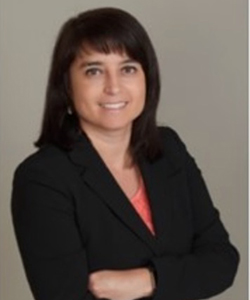
“I wanted to be an engineer for a long time, Chapman said. “My dad was an engineer, so that was an influence.” He chose civil engineering because he was interested in the physical sciences. “I liked the idea of working on your design outside and in the real world.”
At UWM, he is part of the Engineers for Sustainable Design and Culture organization.
A student internship at the Milwaukee Metropolitan Sewage District, funded through the Milwaukee Area Workforce Investment Board, inspired his interest in water research.
Paul Newcomb, ethnic studies
When he took history classes in high school, Paul Newcomb always found himself wanting to know the rest of the story. The closest he came to really delving into history was an Advanced Placement history course that had a small unit about the role the U.S. played in overthrowing the queen of Hawaii and the legacy of imperialism. “That’s what I wanted to know.”
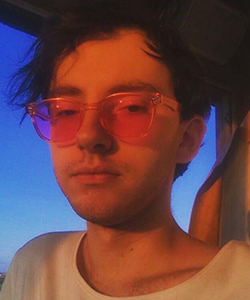
At UWM, Newcomb is majoring in ethnic studies with minors in African and African Diaspora studies and history.
His undergraduate research with mentor Rachel Ida Buff, professor of history, has taken him into high school classrooms, immigrant rights organizations and archives.
He worked on the Encyclopedia of Milwaukee project, and did undergraduate research recording interviews with people from immigrant rights activist groups about deportations. Then he had the opportunity to do “drop-in” curricula on ethnic studies in two MPS high schools – Audubon and Riverside.
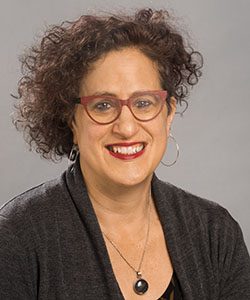
During the past summer, Newcomb’s focus turned to collecting materials about the ongoing protests in Milwaukee and Wisconsin and how the information was being archived for future historians. Those materials include everything from photos to news stories about curfews and arrests, to specific information about events and statements from organizers and politicians.
“We’re navigating some tough questions about archives and asking who owns the things we’re collecting.” For example, he said, who has control of a community archive and what goes into it.
The project also looks at the media coverage, particularly the language used in describing protests. “We’ve seen the news use language or rhetoric that is problematic.”
“The main focus of this project is how do you build an archive that is appropriate and respectful of the community.”
Noah Wolfe, exceptional education
The summer before his first year at UWM, Noah Wolfe applied to a lab that focused on autism, but it was full. So he talked to Kyla Esguerra at the Office of Undergraduate Research, who suggested Chris Lawson’s lab on cognitive development in the Department of Educational Psychology.
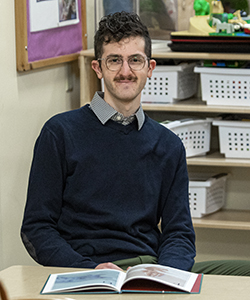
“So I met with him,” says Wolfe. “He’s very outgoing and really cool. He shot me an email that said we’d love to have you in the lab. I literally fell in love with the work.”
Wolfe has been working for the past three years with Lawson, associate professor in educational psychology. They are researching inductive reasoning in school-age children – looking at how they learn information in one context and then apply that knowledge to new questions in a different context.
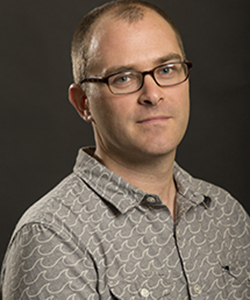
During his senior year, he’s hoping to focus on students with special needs and compare their results with those found in earlier research.
He has presented research at multiple conference presentations throughout the Midwest, and has published an article in the Journal of Cognitive Science.
Wolfe is also the first student in a new accelerated master’s degree program in special education that combines undergraduate and graduate studies and includes teacher certification. Through that program, he’ll be able to earn his master’s degree much sooner.
Sofia Mattson, psychology
Sofia Mattson has known she wanted to be clinical psychologist since she took a career test in eighth grade. “I looked into it and the more I researched it, the more I knew that’s what I wanted to do.”
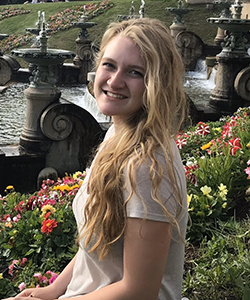
Working with her mentor, Professor Christine Larson in the Affective Neuroscience Lab, she has researched how memory capacity is affected by fear and anxiety.
This research in the neuroscience lab can be particularly helpful to those who are affected by anxiety and post-traumatic stress disorder. “We wanted to see if fearful stimuli would distract from the brain’s ability to properly store information. ”
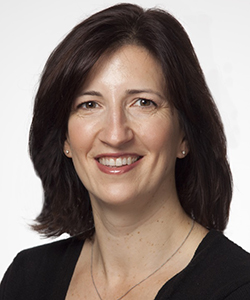
The fact that UWM was an R1 research institution was a key factor in her choice of a university. Another factor was the university’s harp program since Mattson is also a talented harpist.
The research and articles shared by her mentors have boosted her research abilities, and helped her get on the right track to prepare for graduate school, Mattson said.
“It’s incredible. I couldn’t imagine this would exist in a college undergraduate program. While some conferences and presentations haven’t happened since pandemic struck, she said, “I feel like there are opportunities are flying my way all the time.”
